Here in the Seattle Mercy home, there is a sign in our kitchen that reads, “Passengers shall maintain control of their baggage at all times.” During this time of uncertainty and remote service, I can’t help but reflect on the ways I have attempted to maintain my own baggage. As most know, Seattle has been a hot spot for the Coronavirus outbreak. Each day, the news reflects changes in the spread and timeline of the virus, which impacts so many people. The barrage of change has undoubtedly shaken up many lives; it certainly has for me. My emotional baggage has become more salient and noticeable during this period of change.
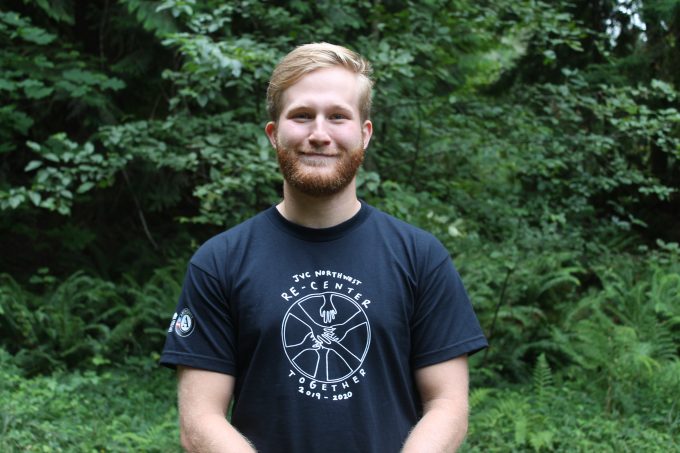
My hope starting this year of service with JVC Northwest was that I would grow in tremendous ways, so that I can continue on in the field of social work. I believed that I had a handle on my emotions and I was certain I would find ways to engage with trauma healthily. I serve at the Downtown Emergency Service Center’s Morrison Hotel with people in permanent supportive housing. Mental illness, chronic homelessness, developmental and physical disabilities all coalesce into a unique blend of trauma and stories of resilience. When I was able to be present at service, I often served in the kitchen. I prepped meals, served coffee, facilitated groups, delivered groceries, and spent time getting to know residents personally.
Coming fresh out of college, having almost no experience with people who were chronically homeless, did not prepare me for the Morrison. I was intellectually ready, having had plenty of opportunities to learn about social problems, but that is not the same as being present. The people I serve with also come up against numerous social systems that wield power over them. As a white cis-gendered male, I have been seen as someone who wields power. Considering how I have access to handing out food, this reaction is not very surprising.
Around late September, having barely been serving for a full month, a resident was having a rough time with his mental illness as well as taking more drugs, which culminated in him acting out against staff. He came to a group and demanded multiple snacks, which I told him I could not do at the moment. This response led to him pulling a knife and waving it erratically, screaming about how unfair it was. Eventually, he calmed down and left. Other residents and I continued playing Bingo. At the time, I had no outward reaction to the behavior; however, that interaction did make me more jumpy and hesitant.
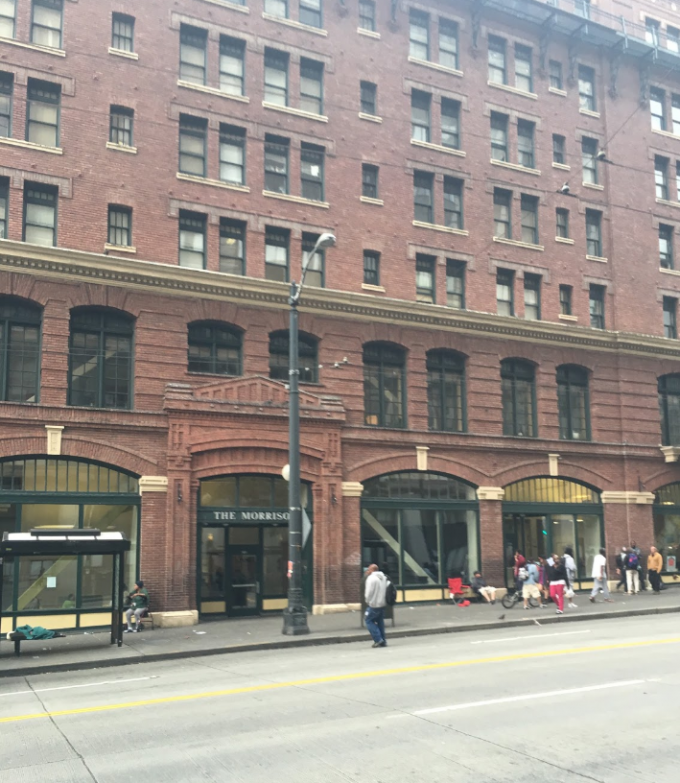
After roughly six months of being present with the residents, I was truly beginning to hit my stride and grow closer to them. That resident who pulled the knife unfortunately died a couple months ago. We were in a much better place in our relationship than when the incident I described happened, thankfully. His death impacted me deeply, causing me to reflect heavily on how much I take for granted.
The news of serving remotely hit me hard. As someone who establishes my identity around what I do, it has forced me to engage in some serious reflection. I very much miss the residents I serve; however, distance has allowed me to begin the process of diving deep into my own trauma exposure response.
Remote service has allowed me to delve even deeper into the privilege and opportunities I take for granted as well. Another privilege I used to take for granted was my health. I have been wrestling with chronic back pain for well over a year. Mobility is something I treasure as a result. A month ago I was on a run and was tapped by a car while running through a crosswalk. This was a scary incident, but I put off processing it until transitioning to remote service. Again, minimizing the severity of a traumatic experience and dissociating from its impact are major features of my trauma exposure response.
The accumulation of traumatic experiences can change a person over time. I am not who I was when I started this year, and that is an amazing testament to what an intentional year of service can be. However, not all the changes have been healthy or beneficial. The conclusion that I have come to is my trauma, my inner state, is in my realm of influence. I have a responsibility to myself, to my community mates, to the greater community, and to those I serve with to become a better steward of my trauma. By coming to understand myself better, my own resilience and empathy will surely grow. This is my hope during this time of social distance.
I have come to the realization that here lies a unique opportunity to redefine my understanding of service and reflection. I now see that the two are more intricately linked than I had originally believed. So much so that, in my case, reflection has and will continue to mold me into a more present person. I tend to minimize my experiences with trauma and then dissociate from them, which is noted by Lipsky and Burk in their book on trauma stewardship as two of the 16 warning signs of trauma exposure response. Whether it be my interaction with a resident pulling a knife, or getting tapped by a car while on a run, I have developed a tendency to push the experience away from myself and to minimize its impact. The way that trauma affected me put me in a sort of fog for a few months. I was less present for myself, for my community mates, and for those I serve, which was the last thing I wanted.
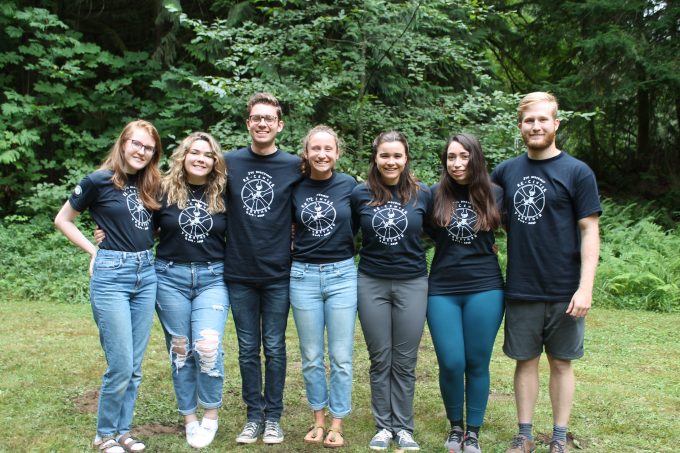
I am not sure when I would have had time to dive deep into how trauma has shaped me this year along with how it has impacted my service if not for serving remotely. “Remote” service is such a strange concept, one with which I am sure many of my fellow JVs are currently wrestling. I never realized how important a regular schedule was for me until it was taken away. My community mates have differing capacities for serving remotely. In my case, I learned that much of my service cannot be done remotely. This led me to frantically searching for ways I can pursue training opportunities, alternative service, and adapted service. I have been working on learning Spanish, pursuing certifications, developing group curriculums, and personal growth. It is not lost on me that being in a secure enough place to deeply self-reflect while staying at home is a privilege that not many get often. Recognizing this, my hope and prayer for the many people affected by this series of events is that peace and strength is discovered in unlikely places.
Being removed from my service site has not been ideal, but distance has provided me ample opportunity to engage with myself so that I can be more whole when I return. For those of you who are reading this piece, I invite you to look into ways that you can engage with yourself. Reflection can be daunting, exhausting, and difficult; however, the potential rewards are bountiful. There is no doubt that this time of social distance is difficult and scary for many. I have so many supports here at Mercy House that I know my quarantine is nowhere as difficult as those who have lost jobs and loved ones. Though this is the case, it is still worthwhile and acceptable to take time to reflect on oneself. My hope for everyone during this time is that we will come out of this period more whole and cognizant of what makes us who we are. We are all facing this together.
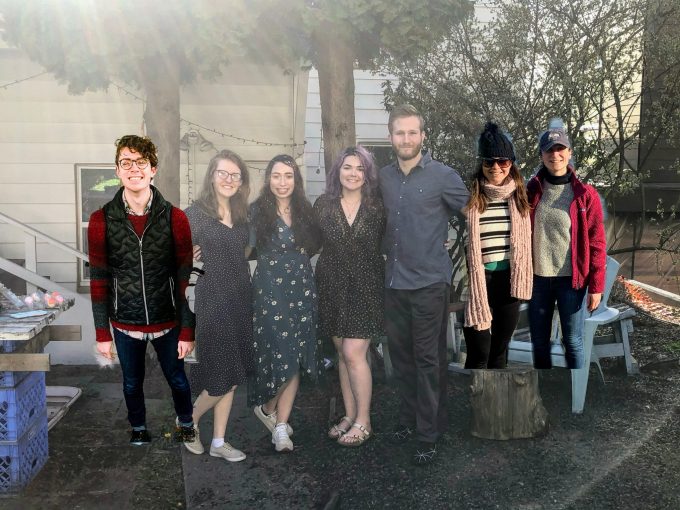
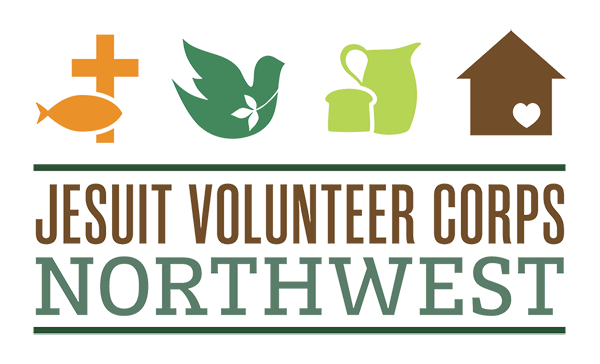
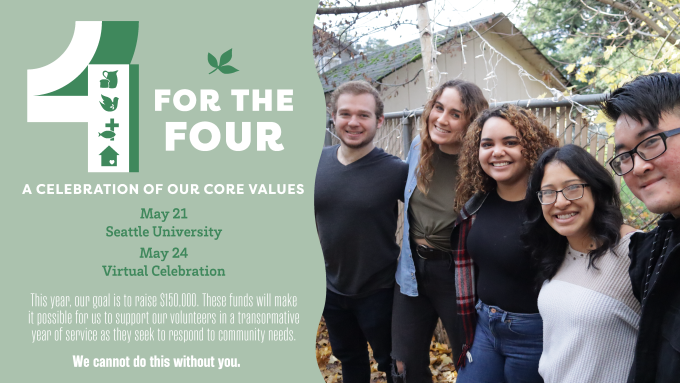
Wow Cody this was so beautiful and gave me so much to think about. Being present in the moment is very hard for me as I’m usually 5 steps ahead in mind. Processing trauma isn’t easy as I know from experience but it has made me who I am today and in a weird way grateful for it. God speed my nephew stay safe and healthy.
Cody,
Thank you for your article, I just wanted to affirm you and your willingness to share this important reality.
I served in ‘13-‘14 and have only recently come to realize how my own physiological trauma (both from childhood and later events) has affected others, and that I can actually do something about this. I’ve found Somatic experiencing coupled with cognitive therapy extraordinary helpful and this has allowed me to both see myself more clearly and to learn and do things differently moving forwards.
Grateful, thank you.